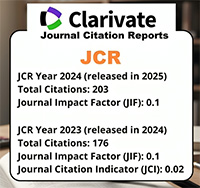Proliferation and Bystander Suppression Induced by Antigens of Trypanosoma Cruzi. Evaluation With a Modification of the T Cell Blot Technique
Resumen
We have studied in vitro proliferation induced by soluble antigenic fractions of T. cruzi epimastigotes and trypomastigotes, as well as their regulatory effect on the proliferative response to PPD. Both crude extracts of the parasite as well as bands from Western blots of soluble epimastigotes and trypomastigotes antigens were tested. Crude extracts elicited higher proliferation in mononuclear cells from patients with chagasic cardiomyopathy (CDM) than in those from patients with no evidence of cardiac pathology (INF). Fractionated antigens induced a lower proliferative response, in intensity as well as in frequency, than the crude extracts. With the soluble antigenic fractions of epimastigotes, cells from CDM patients gave higher responses to low molecular weight (MW) bands (17 to 30 kDa), and from INF patients, to bands of intermediate MW (31 to 62 kDa); this pattern was inverted with soluble antigenic fractions of trypomastigotes. The two crude preparations induced either up-regulation or down-regulation of the PPD response in variable numbers of patients from both groups. With fractionated antigens, down-regulation intensity was stronger in patients without evidence of heart disease, but frequency was greater in patients with Chagasic cardiomyopathy (CDM). Six bands of western-blot of soluble trypomastigote antigens (B1, 4-7, and 9) induced significant down-regulation in 100% of CDM patients. The up-regulation elicited by most bands of the antigenic fractions was significantly higher, and more frequent in patients without heart pathology. Most bands of soluble trypomastigote antigens (10/15; 66.6%) did not induce up-regulation in patients with cardiomyopathy. These data suggest that differences in the clinical status of the two groups may reflect the recognition of different groups of antigens together with variations in the nature of the regulatory response




















